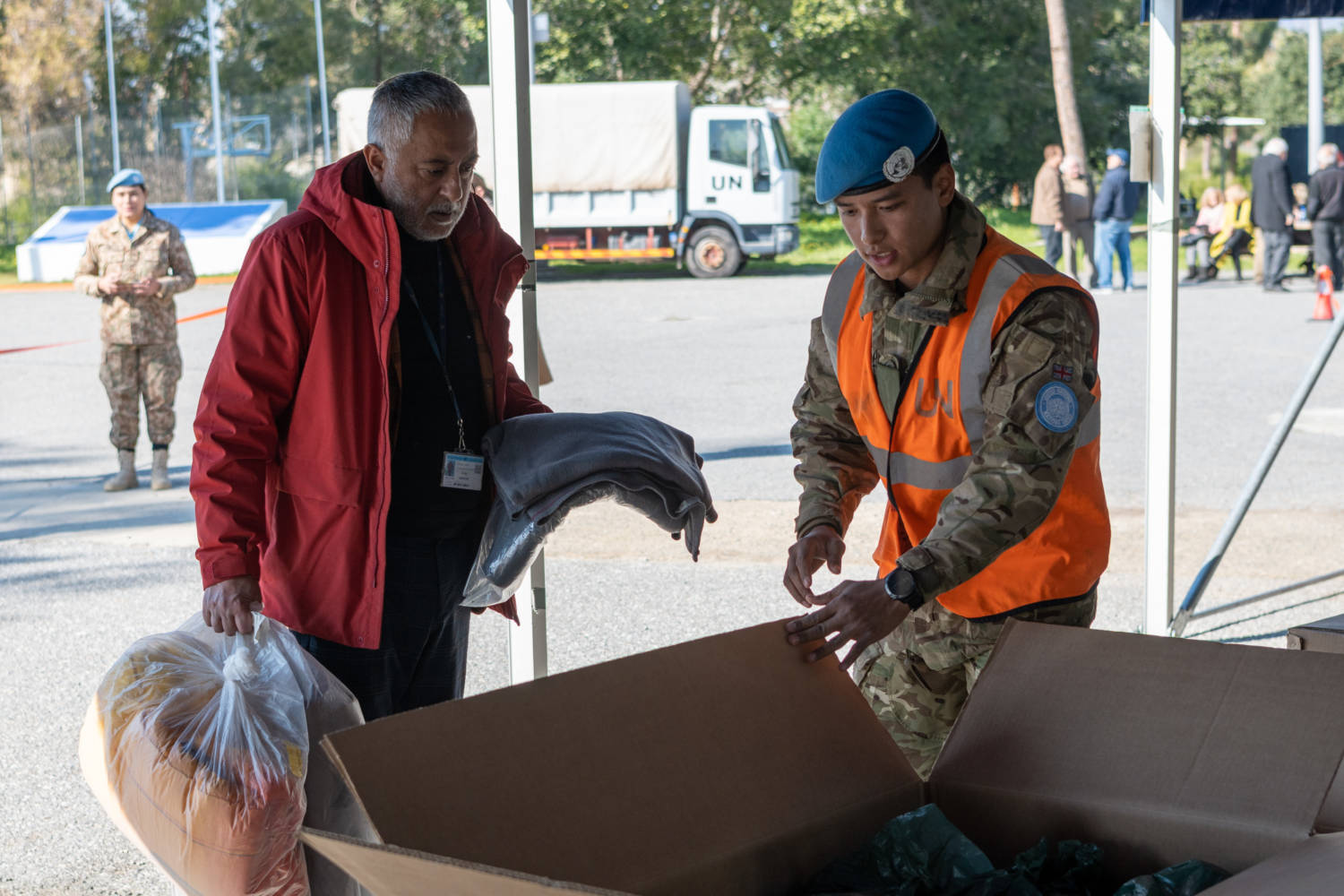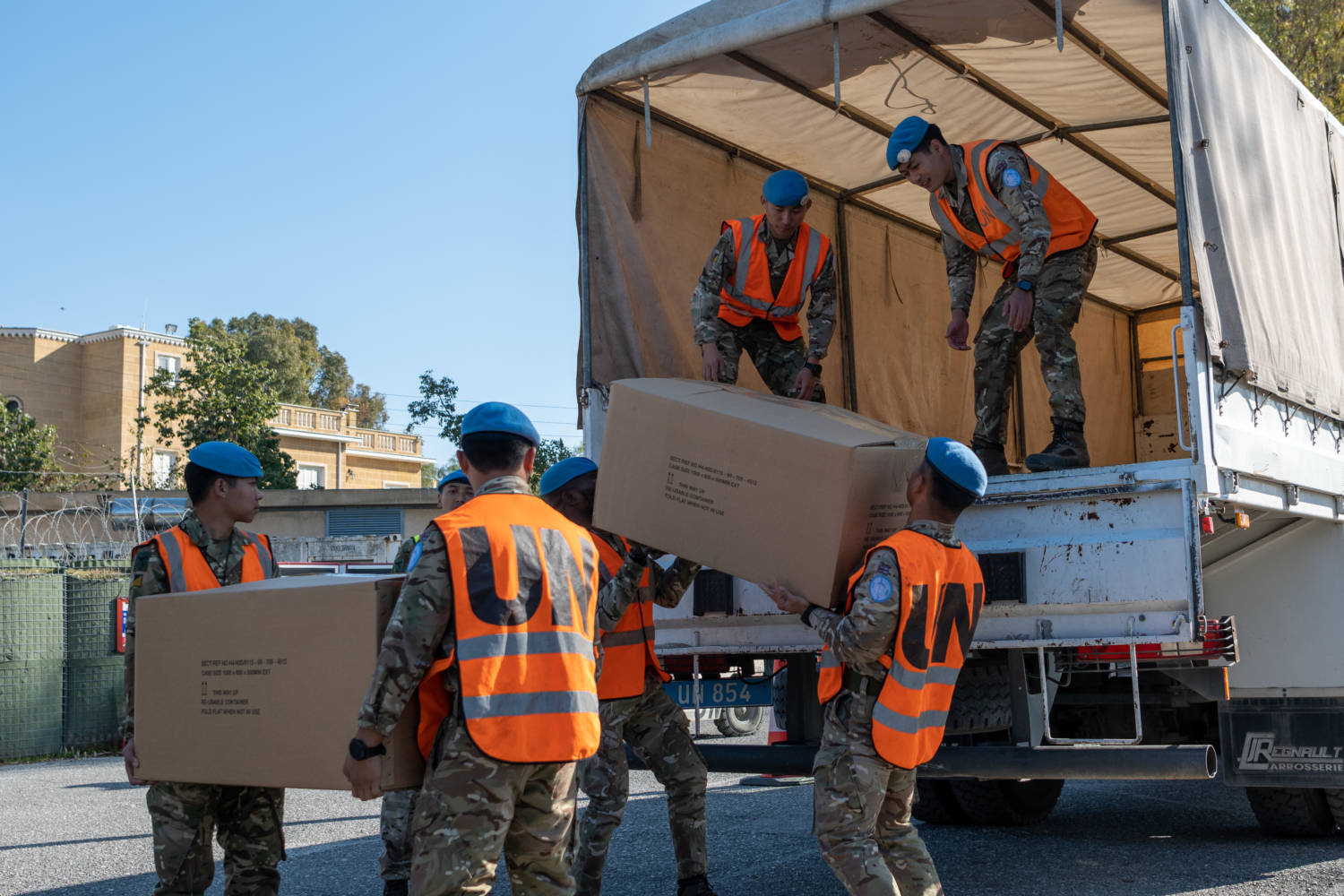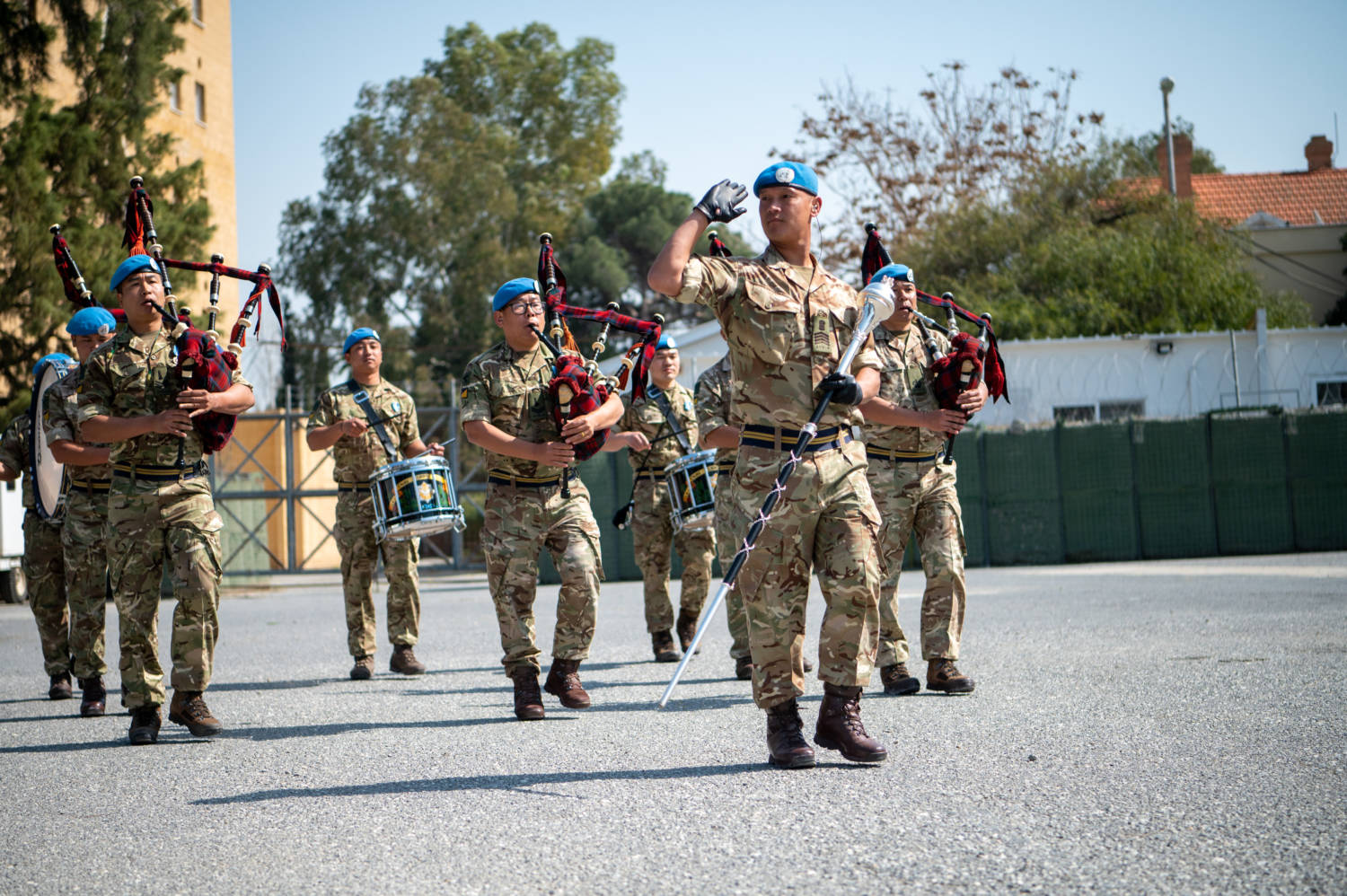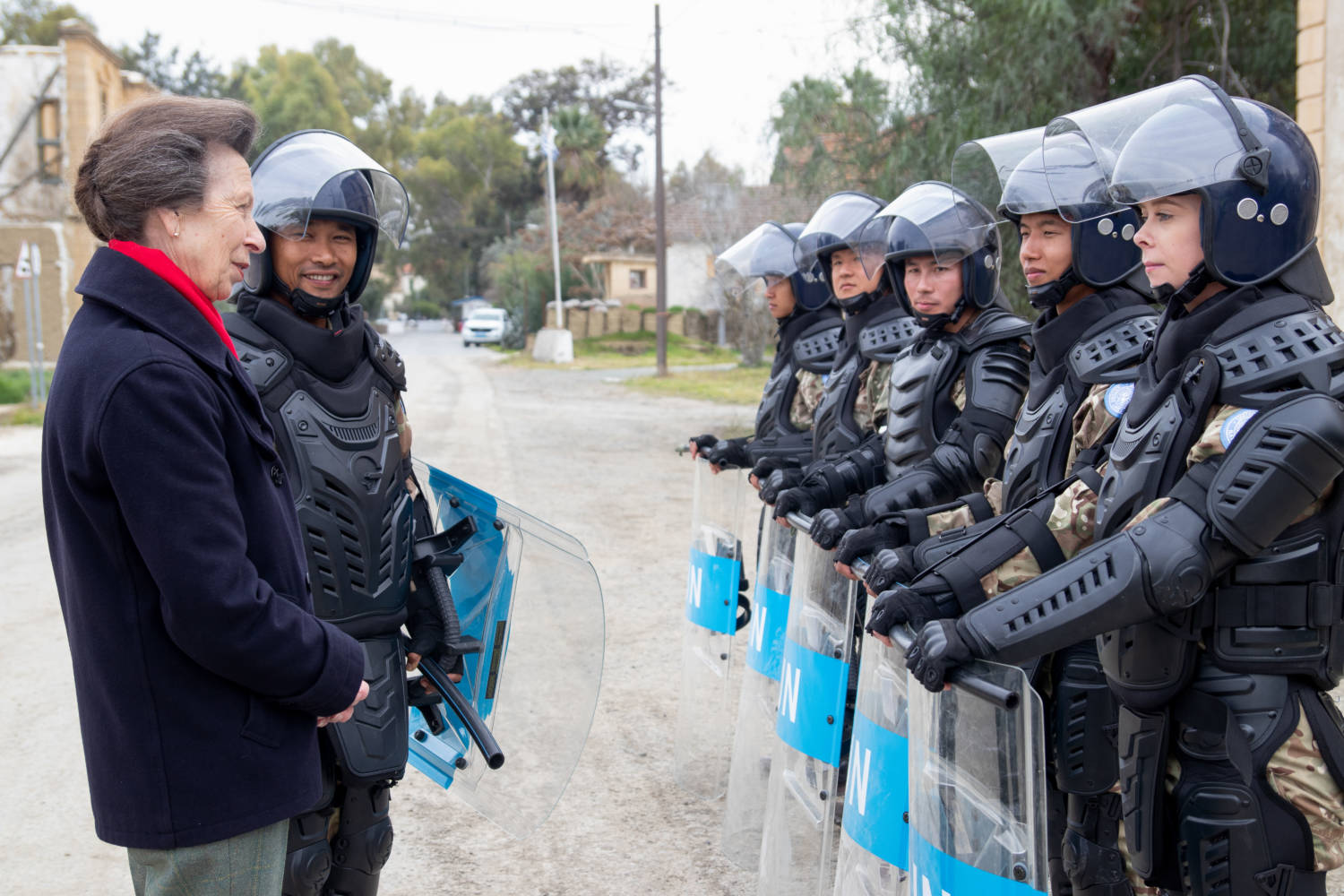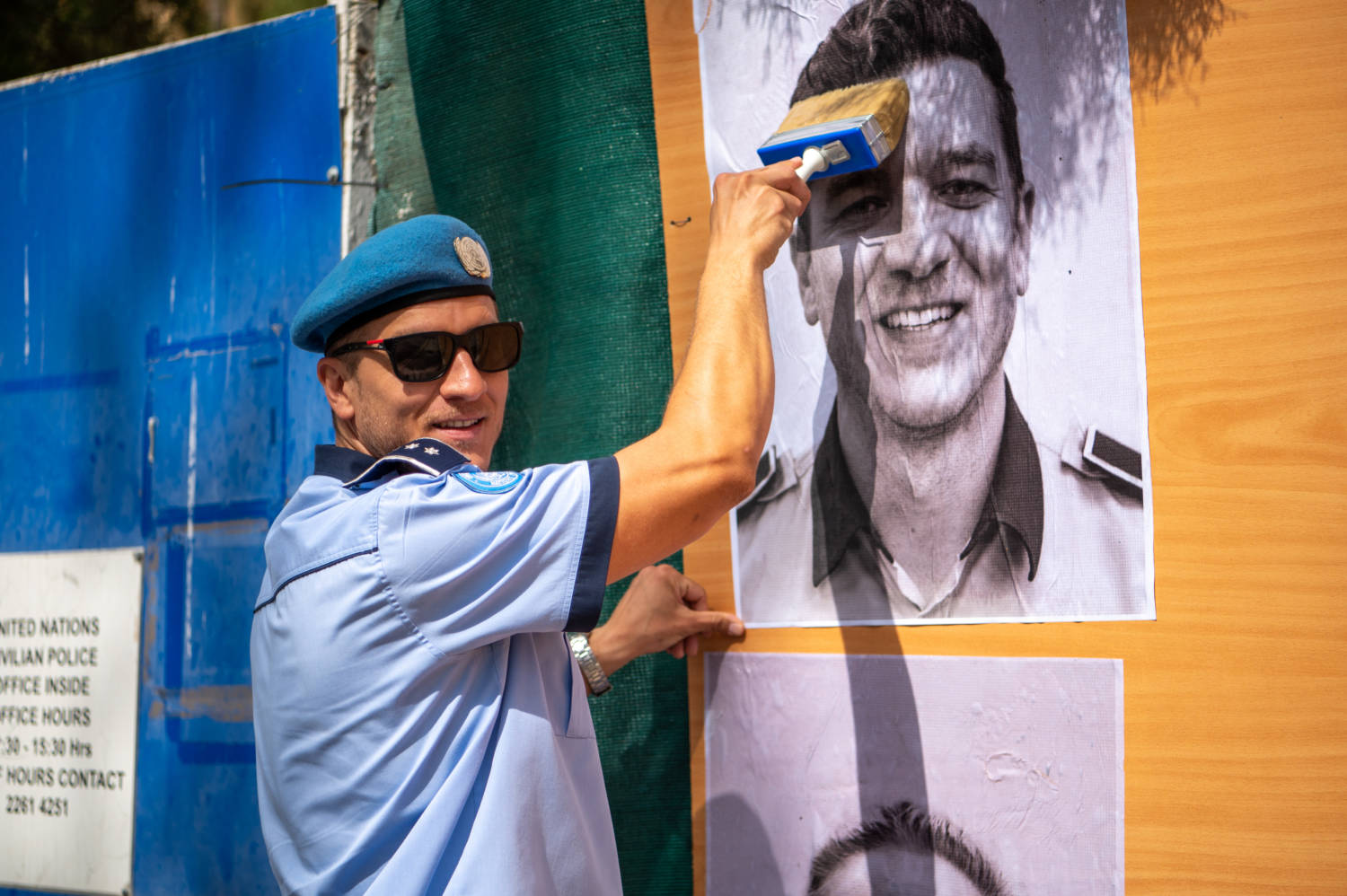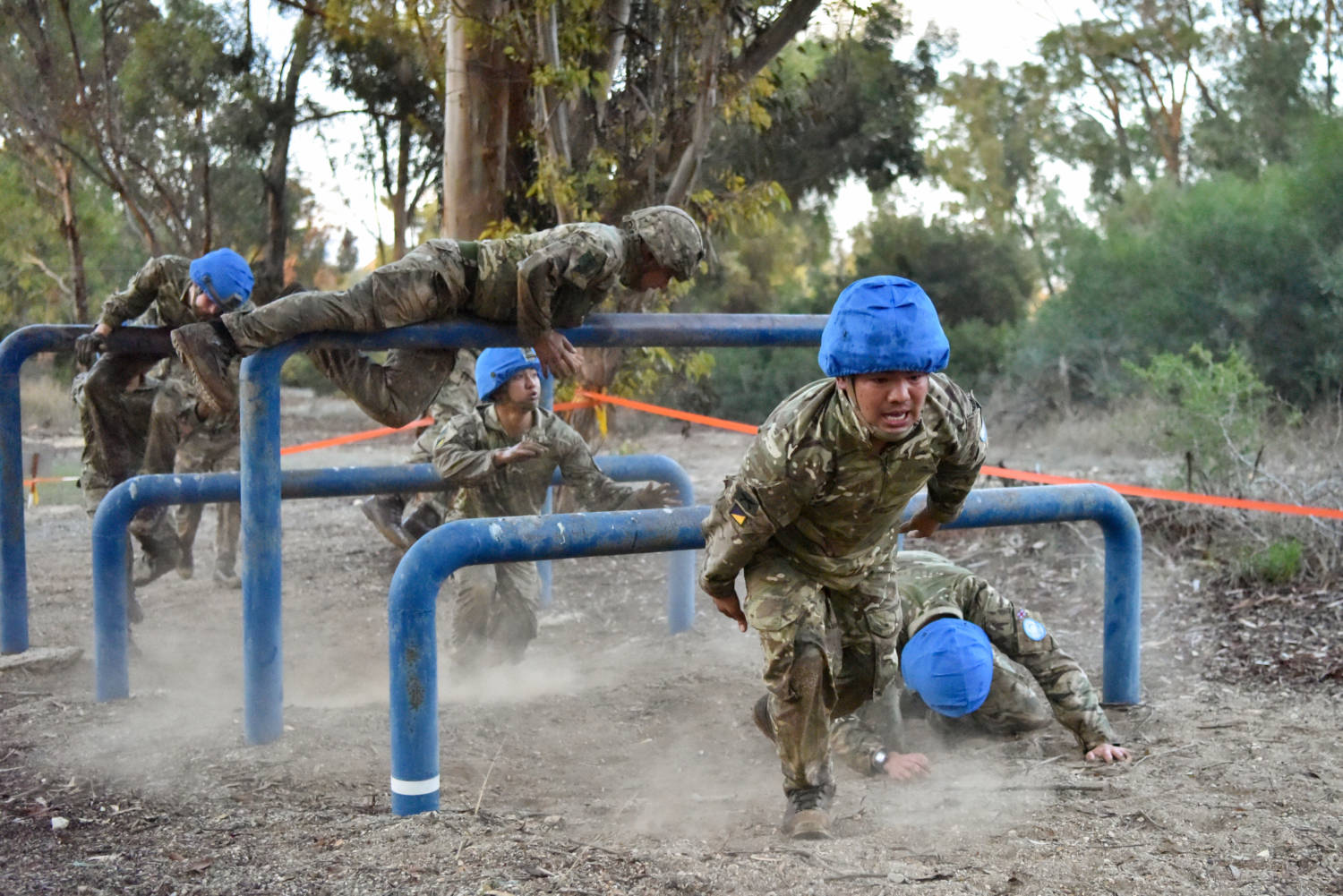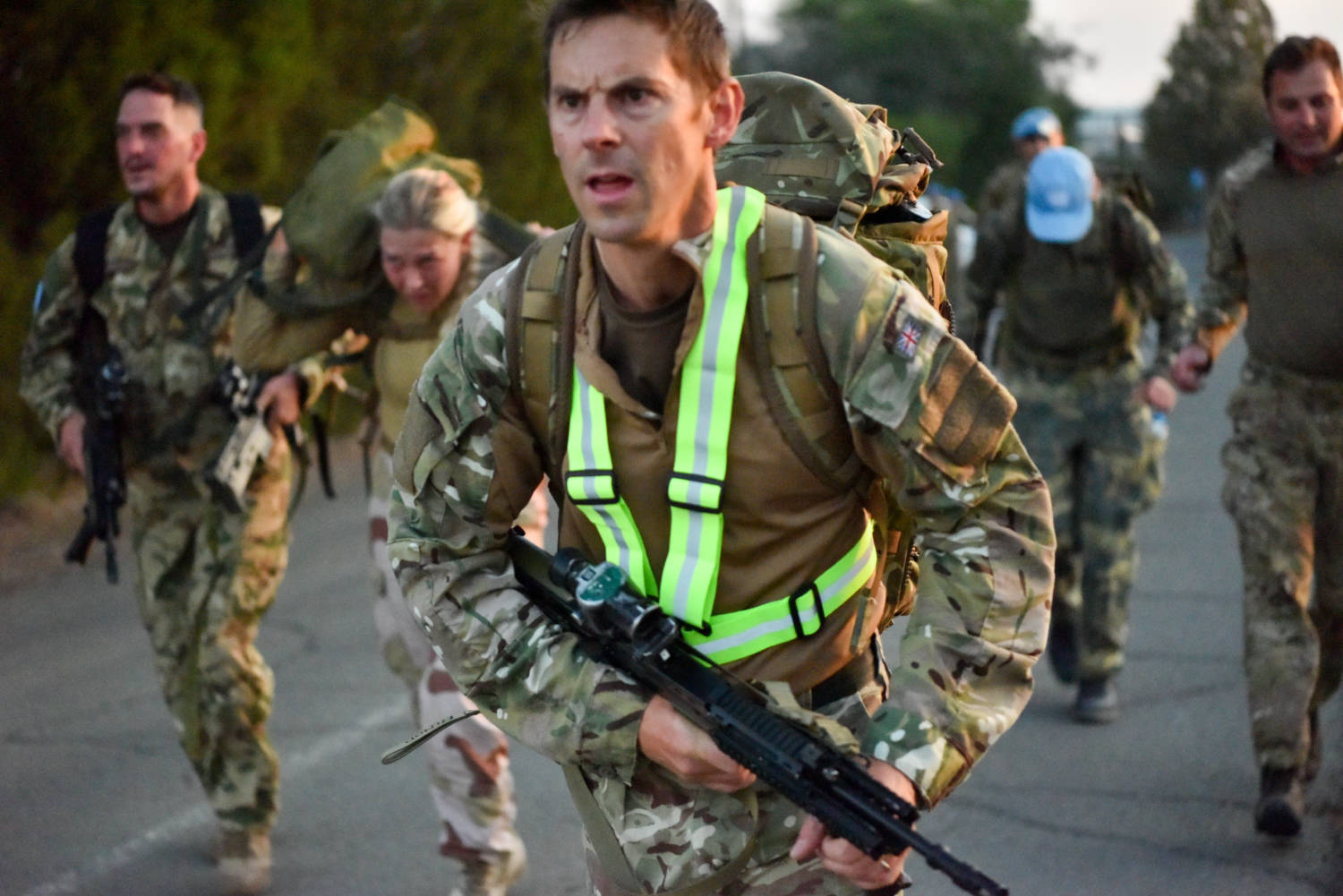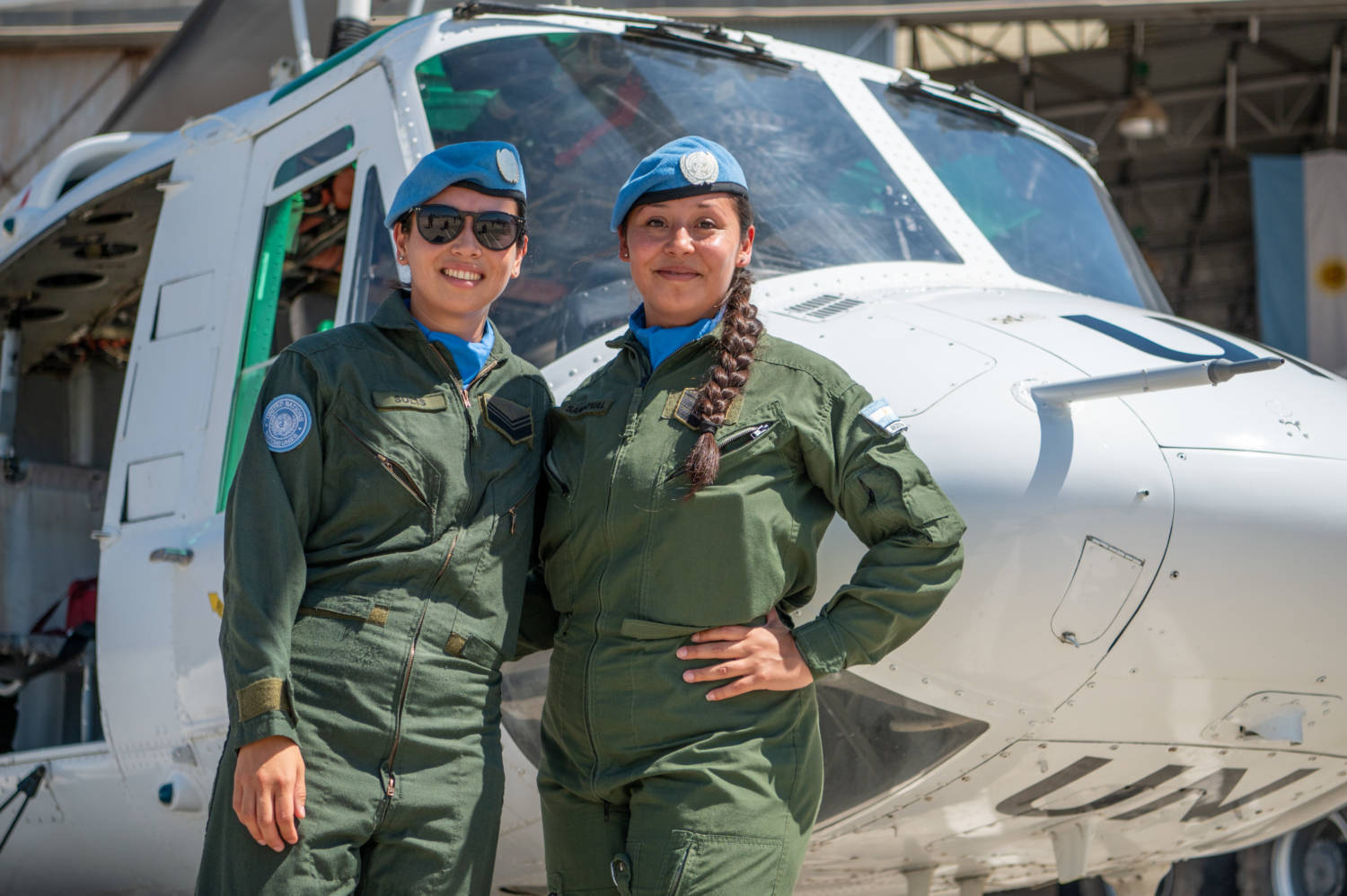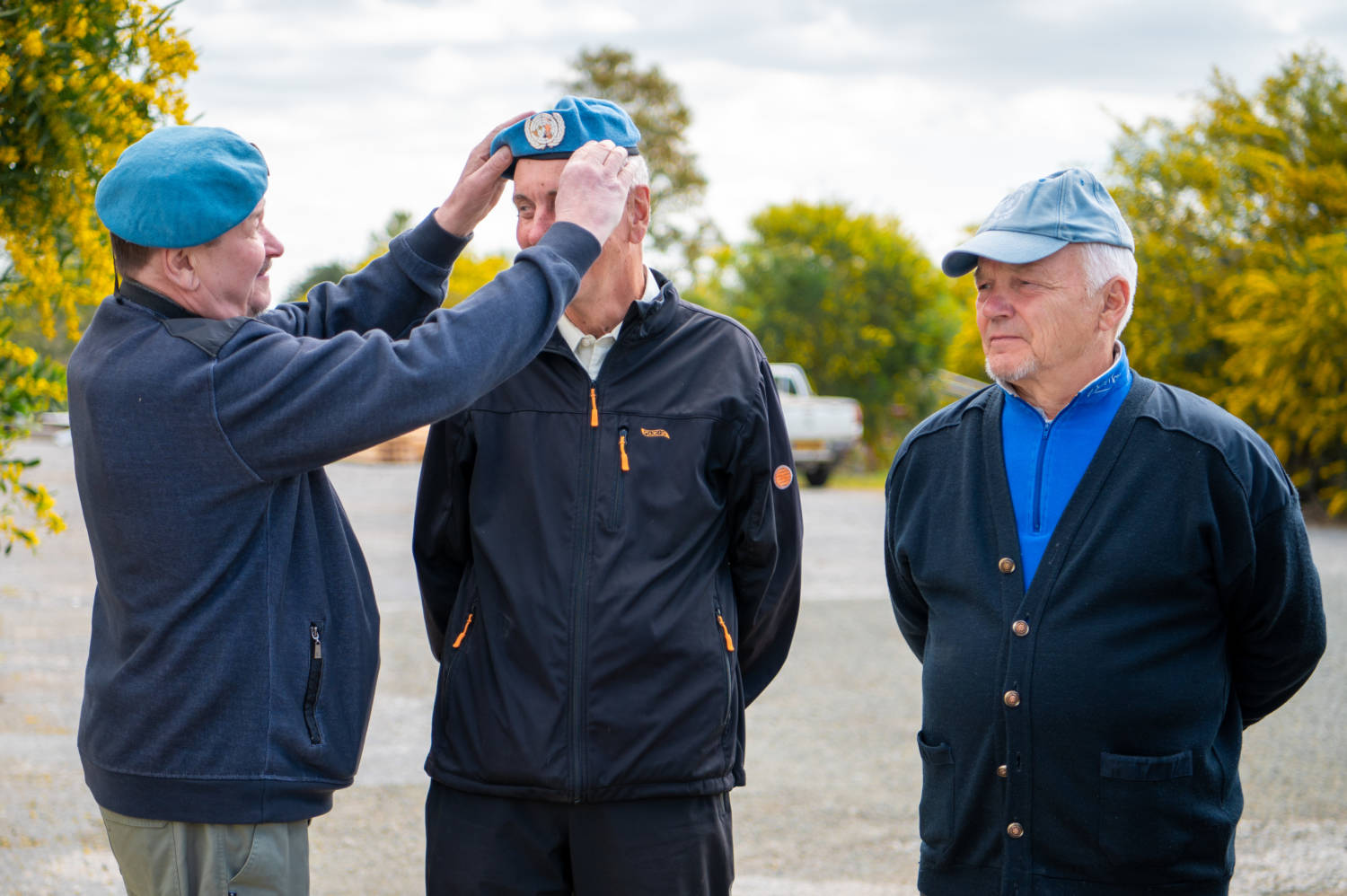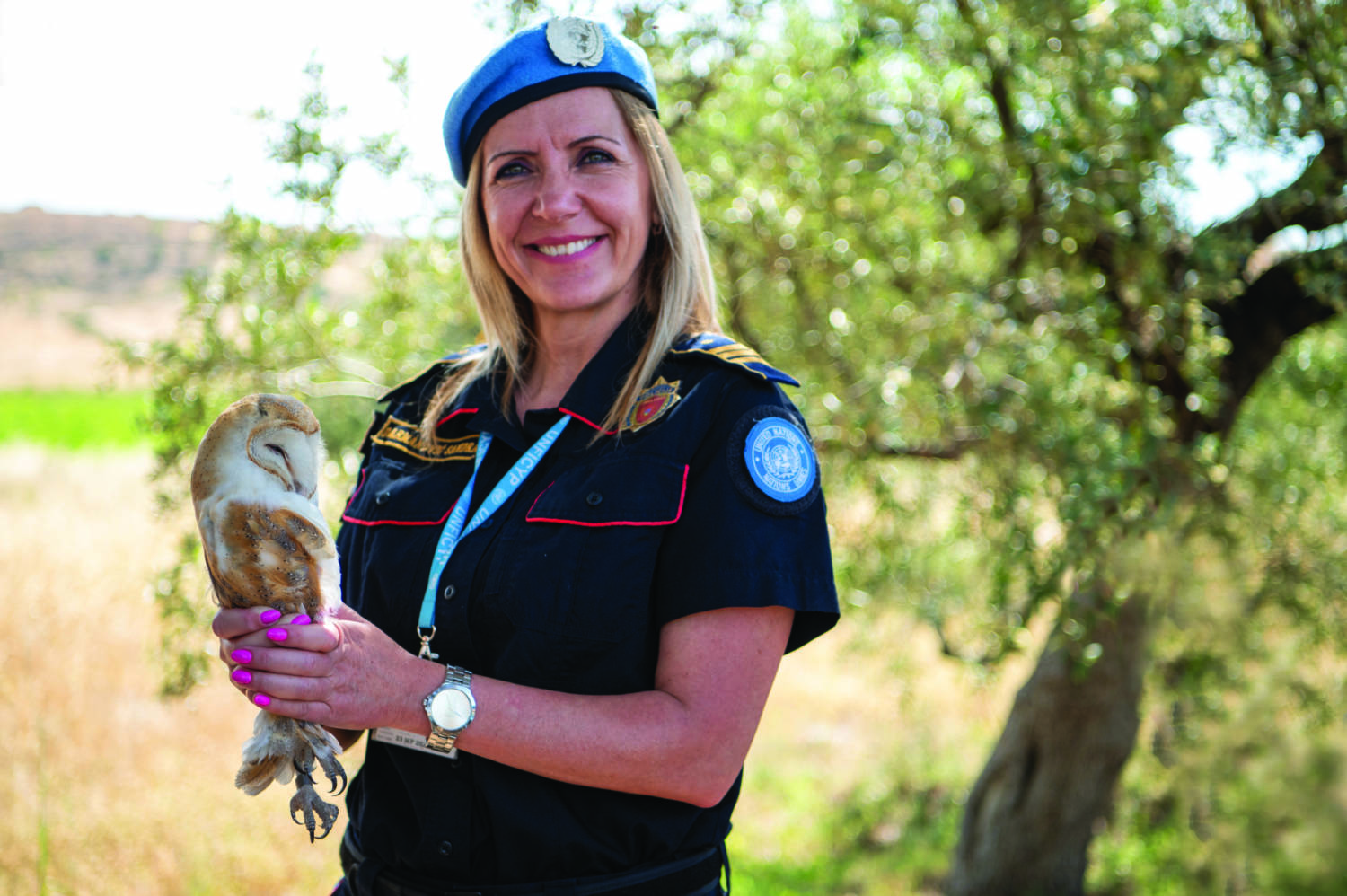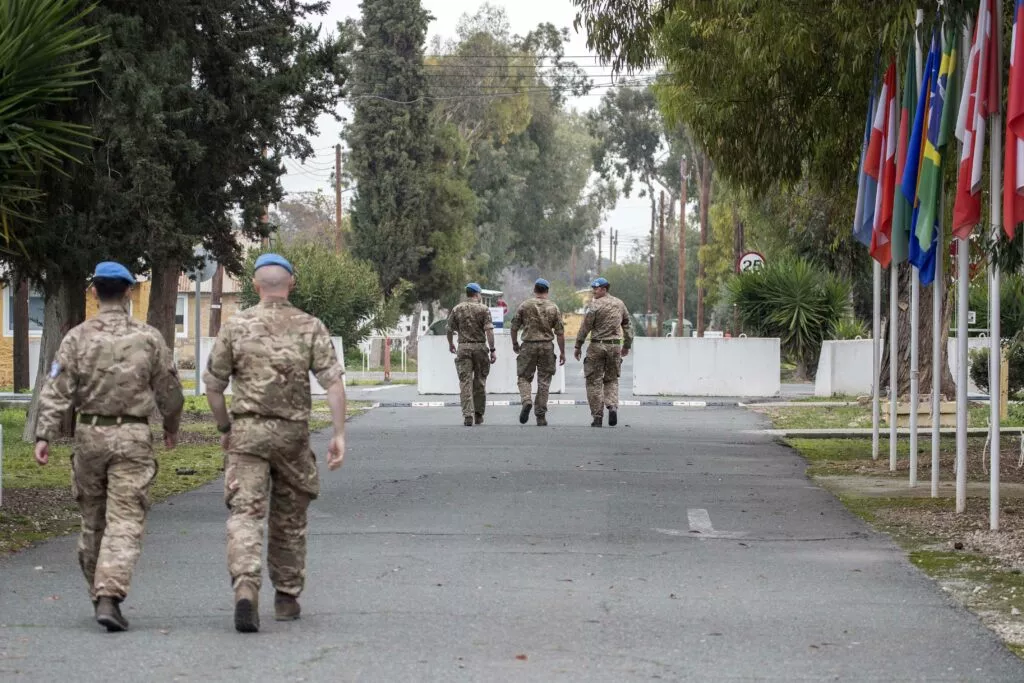By Andreas Bimbishis and Stelios Marathovouniotis.
Pictures by George Christophorou.
On March 4, 1964, the United Nations Security Council unanimously decided to adopt Resolution 186 (1964), which “recommends the creation, with the consent of the Government of Cyprus, of a United Nations Peacekeeping Force in Cyprus”… and simultaneously “recommends that the stationing of the Force shall be for a period of three months”.
Sixty years have passed since that day as “the present situation with regard to Cyprus is likely to threaten international peace and security and may further deteriorate unless additional measures are promptly taken to maintain peace and to seek out a durable solution”.
The reasons for the detachment of the force to Cyprus in March 1964 are still here.
The first peacekeepers from Canada arrived on the island a few days after the adoption of the resolution, along with their British and Finnish colleagues, creating UNFICYP (United Nations Forces in Cyprus).
Since then, over 100,000 peacekeepers have served on the island, many of whom come from dozens of countries that did not exist as state entities and members of the United Nations, when the UN decided to establish UNFICYP.
The mandate terms of the force, according to Aleem Siddique – UNFICYP spokesperson – contain three important aspects:
- First, is the prevention of tensions between the two sides.
- Second, is to help maintain law and order across the buffer zone.
- Third, to contribute to bringing the two sides closer and preparing the ground for a settlement, as well as to help build trust and confidence between them.
We met Aleem Siddique at the UNFICYP headquarters, in the buffer zone near the abandoned Nicosia airport, somewhere in the middle of the ceasefire line.
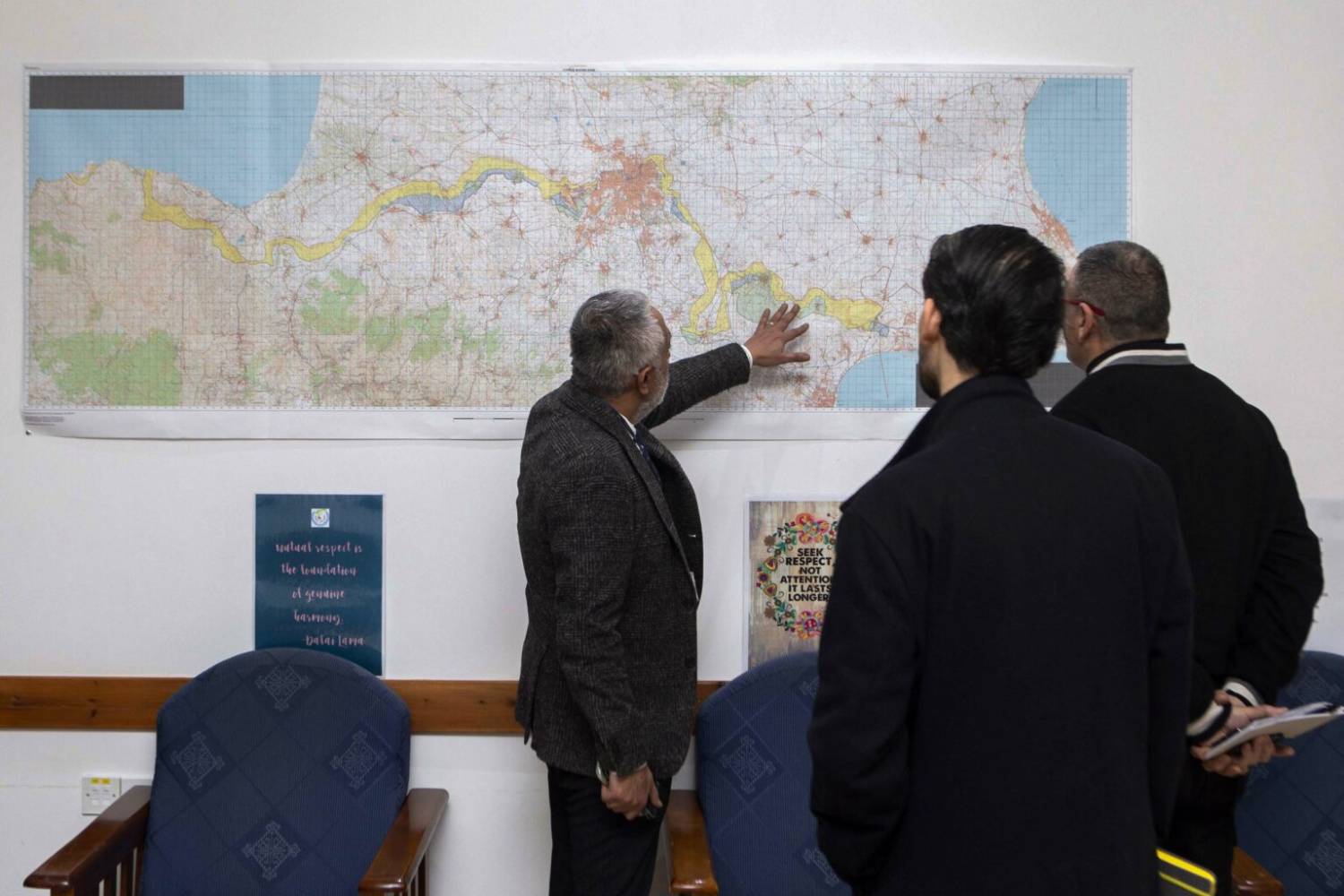
The presence of UNFICYP on the island can be divided into two periods: The first is between 1964 and 1974, during which the main mission “was to prevent tensions between the two sides”.
From 1974 onwards, it was the creation of the de facto buffer zone with attention turning to help maintain law and order across it.
“Currently, we have just over 800 military peacekeepers from 17 different countries serving here in Cyprus,” notes Siddique. They are divided into three main detachments: “The British contingent which is responsible for the area inside and around Nicosia, in the central part of the buffer zone. In the west of the buffer zone, we have our Argentinian contingent. And in the east of the buffer zone, we have our Slovak contingent”.
Each of these detachments is staffed by 240-250 peacekeepers. They are in daily contact with the two opposing forces, the Turkish army on one side and the National Guard on the other.
As the spokesperson for UNFICYP explains, “Their job is to build strong functioning relationships with the opposing sides so that they can resolve problems and tensions inside the buffer zone“.
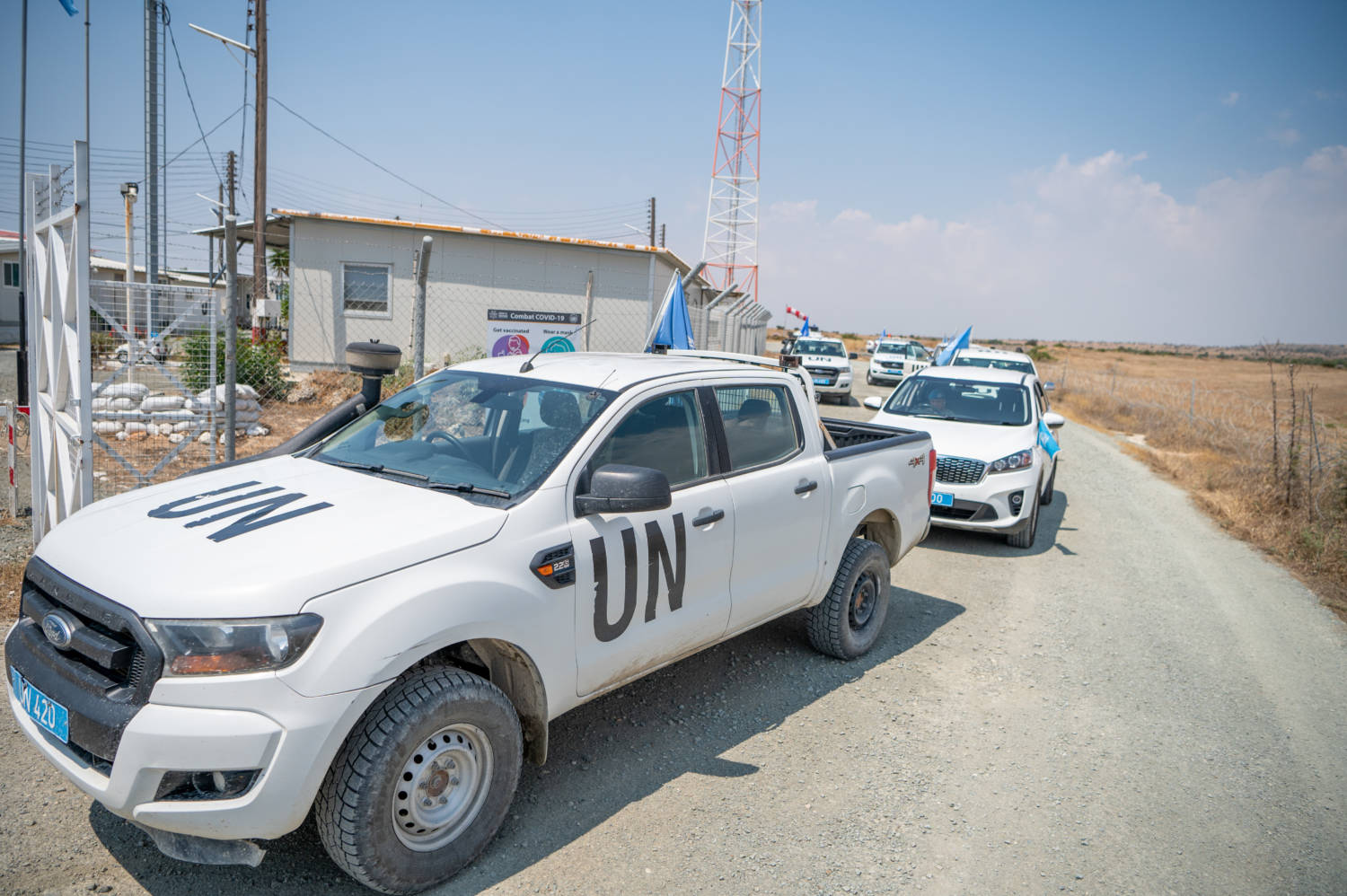
Siddique also notes that “Not many people outside of Cyprus realise that the two sides don’t speak to each other and that we are the only communication channel via which issues can be resolved between the two sides”.
He emphasises that “the role of our peacekeepers in that liaison role is imperative in terms of maintaining and keeping the peace across the buffer zone”.
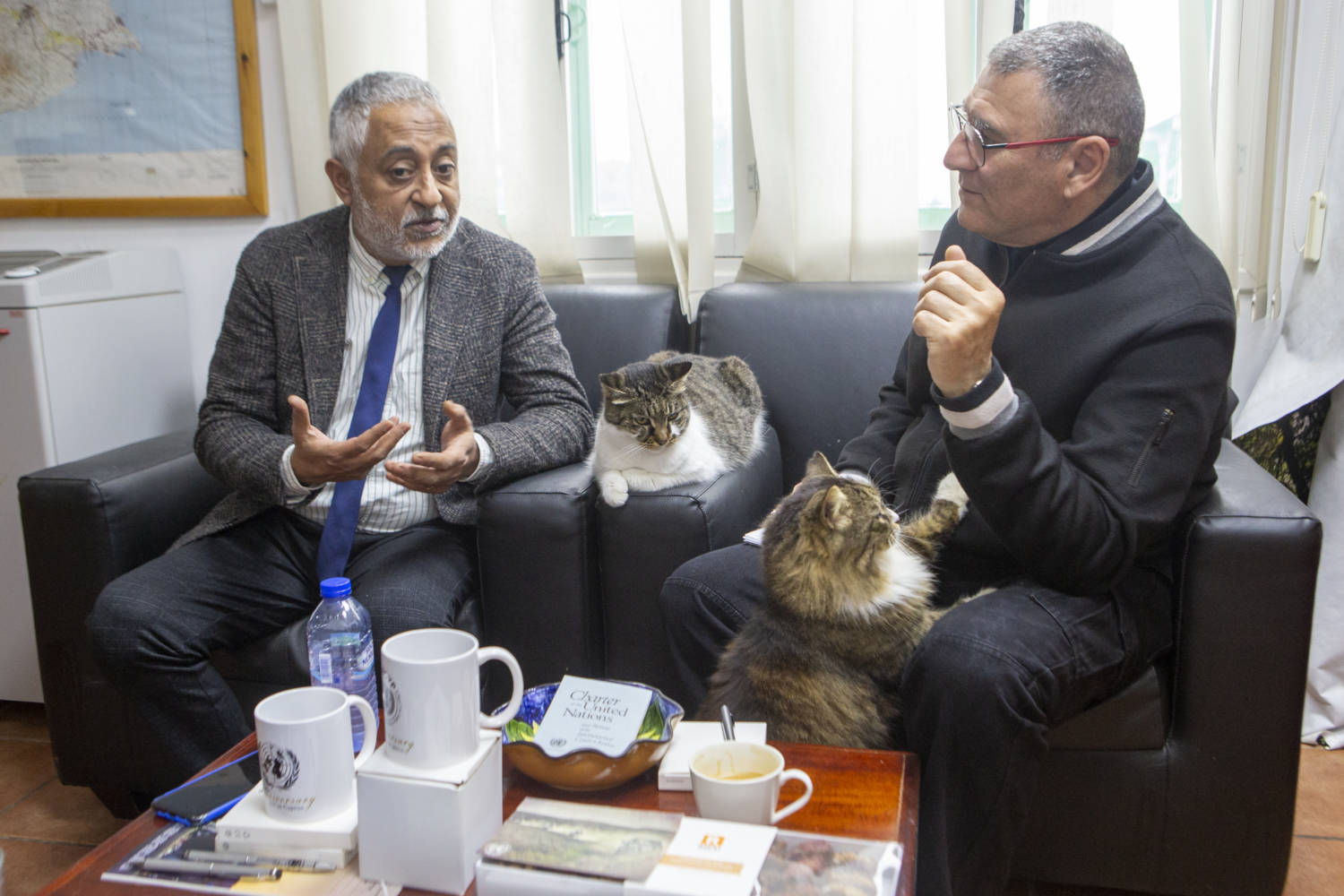
The United Nations Peacekeeping Force in Cyprus is supported by a team of 69 police officers and members of UNFICYP, from 13 different countries. “The main contributor of police to UNFICYP is Ireland, while we also have significant numbers of police from Italy, Serbia, and various other countries,” says Siddique, who takes the opportunity to express the force’s gratitude towards the German President who a few days earlier had announced the deployment of German police officers to join UNFICYP.
The role of UNFICYP’s police force is equally important as it cooperates with the police on both sides of the buffer zone to address law and order issues and criminal matters that may arise within the area. It acts as a point of communication for representatives from both sides to address issues arising from the movement of people from the north to the south.
In these two groups, there is a third one dealing with a series of political matters. This team has a multi-level task starting from promoting trust-building measures between the two sides and reaching the handling of many political activities that may occur within the buffer zone (facilitation of access to land and homes by farmers, interventions, etc.).
Beyond these, the political department of UNFICYP, as explained by the spokesperson, also contributes supportively to the Good Offices Mission, which is involved in the Cyprus talks process.
A frozen conflict
The case of Cyprus, regarding the United Nations peacekeeping missions, is different, and that’s why the question of whether UNFICYP is needed has often been raised.
As Siddique explains, “The profile of peacekeepers that you see here in Cyprus is very different to the profile of peacekeepers you might see in Africa or Asia”.
He adds: “This is a frozen conflict. Our focus is on preventing tensions and building relationships with the opposing forces.”
So, “the types of peacekeepers we are looking for are not those who are driving around with weapons and tanks” but “we are looking for diplomat-soldiers”.
That’s why in Cyprus, one can find police officers from countries where the rule of law is highly developed, they are well-trained and extremely disciplined “because they can achieve far more by engaging in negotiations and discussions with the opposing sides than they do by using military tactics”.
The UNFICYP spokesperson continues: “The profile of our peacekeepers is something between half diplomats and half soldiers. They negotiate, resolve tensions, build trust, rather than engaging in the use of force”.
He notes: “Use of force is only ever used to protect our peacekeepers, the property, and civilians, and as a matter of last resort, only in the absolute extreme circumstances”.
Through this tactic, UNFICYP has managed to prevent conflicts within the buffer zone and generally maintain a stable situation. “And that has required the daily hard work of our peacekeepers,” Siddique says.
The question often arises “Well, how do we know if we’ve been successful here or not?”, and the answer is: “Our job is to stop tensions from rising and to stop incidents from happening. So no news is good news. Yeah. And that’s where our focus is, is not on making news but on preventing news, and ensuring that there is a platform of stability for the two sides to be able to come together”.
Since 1964, the means used today by peacekeepers to monitor the entire length of the ceasefire line may have changed, but the basic mission of maintaining calm and avoiding confrontations has not changed.
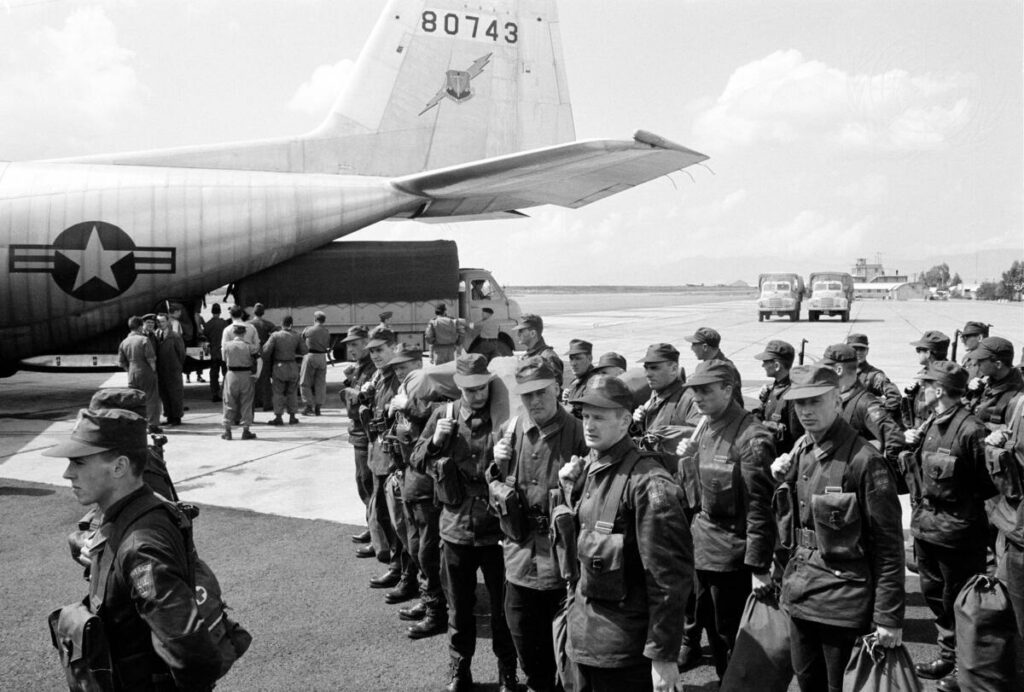
Peacekeeping has its challenges
The work of the peacekeeping force on the island is also affected by the overall political climate on the island, and experience shows that “when the sides aren’t talking at the table, that quite often translates into insecurity inside the buffer zone”.
And because there is a two-way relationship, events within the buffer zone may affect political discussions, but on the other hand, talks may affect things happening within the buffer zone.
In this, the peacekeeping force plays a crucial role as a supporting tool in the Good Offices Mission but also in the work of the United Nations envoy, even after so many years that the two sides do not talk to each other.
If it weren’t for the UN here, emphasises Siddique, then things would be very different and potentially dangerous, with possible incidents within the buffer zone escalating into international incidents, as the recent events in Pyla have shown.
187 dead peacekeepers
The United Nations Peacekeeping Force in Cyprus is one of the longest-lasting missions of the UN. The first peacekeeping mission approved by the United Nations Security Council is that of Jerusalem. It was decided to deploy peacekeeping observers.
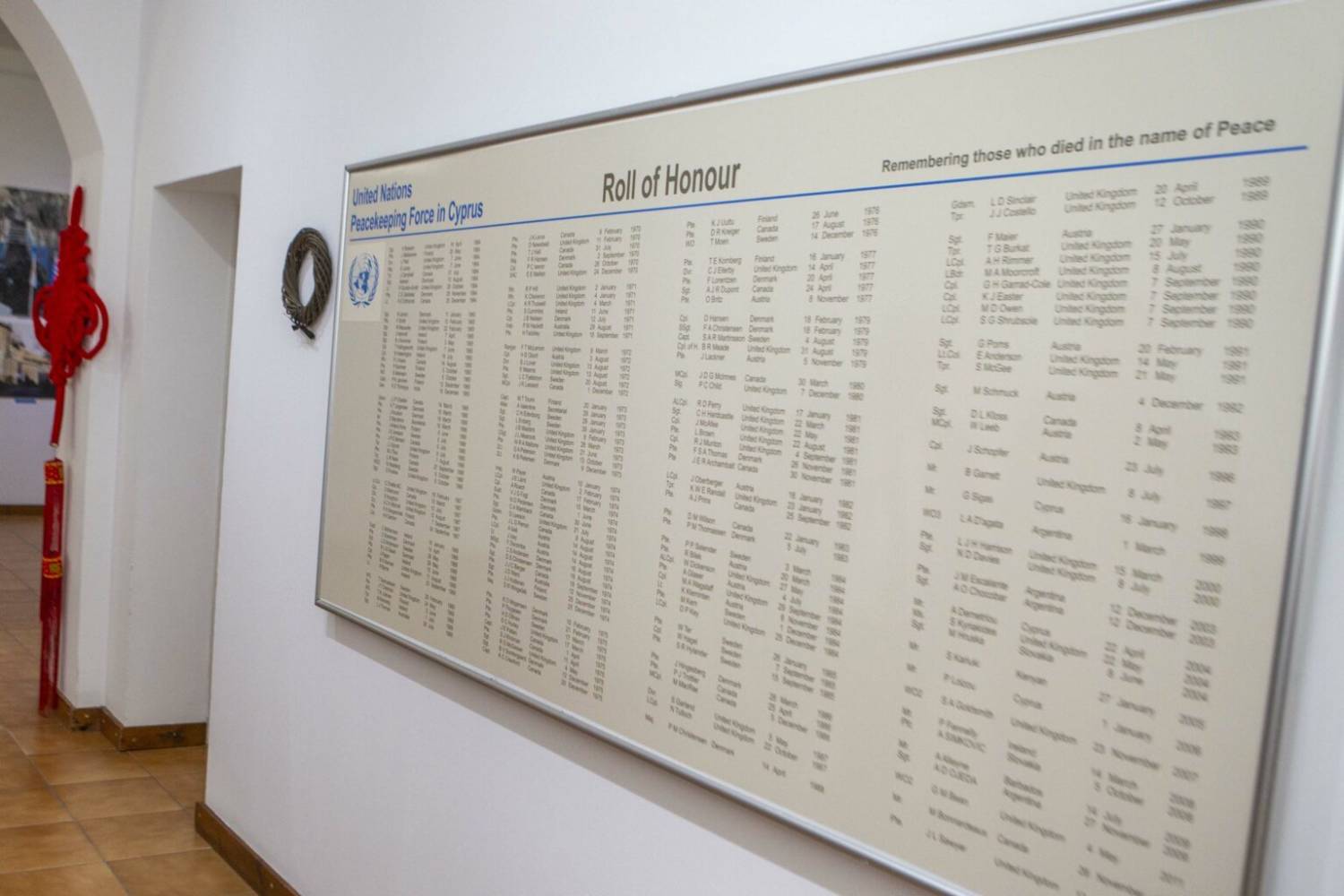
Cyprus is the longest-lasting peacekeeping mission with actively deployed military peacekeepers on the ground, who continue to this day – 60 years later – to perform patrols on the ground.
The mission to maintain peace on the island was not without cost. UNFICYP counts to this day 187 dead, with the last peacekeeper losing his life in 2015 in a traffic accident. Most died in the ’60s and ’70s when there were tensions and conflicts on the island.
UNFICYP is planning a series of events to honour all those who have worked and continue to work to maintain peace on the island on the occasion of the 60th anniversary of its existence.
Siddique remembers that the biggest challenge UNFICYP had to face during his eight years on the island was the incidents in Pyla last summer. “It was shocking for many people,” he notes, and adds that in the end, “we were able to reduce tension tensions and find a way forward”.
Today “we work closely with both sides to prevent that kind of incident happening again”.
Pictures from UNFICYP’s archive:
